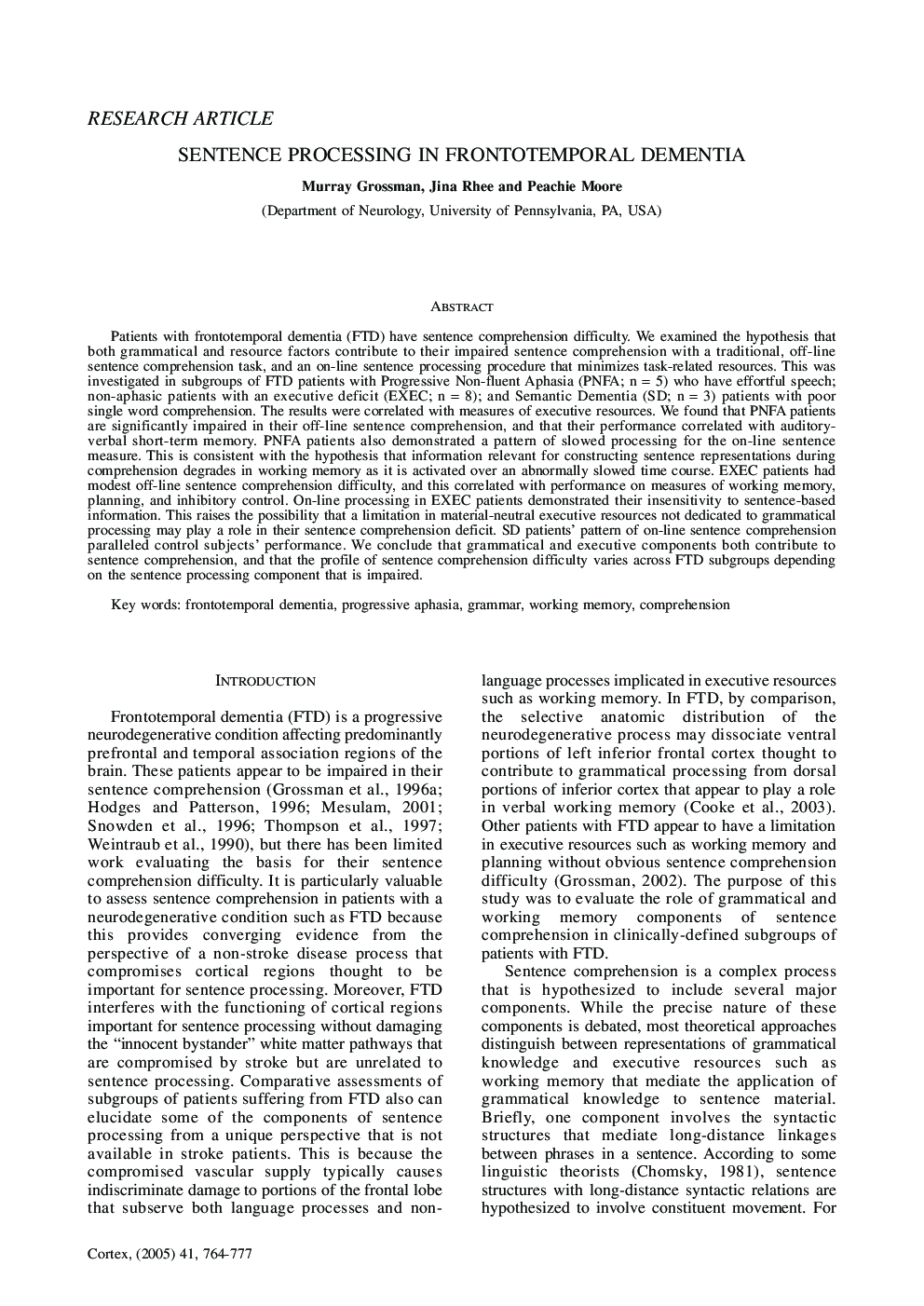| Article ID | Journal | Published Year | Pages | File Type |
|---|---|---|---|---|
| 10463473 | Cortex | 2005 | 14 Pages |
Abstract
Patients with frontotemporal dementia (FTD) have sentence comprehension difficulty. We examined the hypothesis that both grammatical and resource factors contribute to their impaired sentence comprehension with a traditional, off-line sentence comprehension task, and an on-line sentence processing procedure that minimizes task-related resources. This was investigated in subgroups of FTD patients with Progressive Non-fluent Aphasia (PNFA; n = 5) who have effortful speech; non-aphasic patients with an executive deficit (EXEC; n = 8); and Semantic Dementia (SD; n = 3) patients with poor single word comprehension. The results were correlated with measures of executive resources. We found that PNFA patients are significantly impaired in their off-line sentence comprehension, and that their performance correlated with auditory-verbal short-term memory. PNFA patients also demonstrated a pattern of slowed processing for the on-line sentence measure. This is consistent with the hypothesis that information relevant for constructing sentence representations during comprehension degrades in working memory as it is activated over an abnormally slowed time course. EXEC patients had modest off-line sentence comprehension difficulty, and this correlated with performance on measures of working memory, planning, and inhibitory control. On-line processing in EXEC patients demonstrated their insensitivity to sentence-based information. This raises the possibility that a limitation in material-neutral executive resources not dedicated to grammatical processing may play a role in their sentence comprehension deficit. SD patients' pattern of on-line sentence comprehension paralleled control subjects' performance. We conclude that grammatical and executive components both contribute to sentence comprehension, and that the profile of sentence comprehension difficulty varies across FTD subgroups depending on the sentence processing component that is impaired.
Related Topics
Life Sciences
Neuroscience
Behavioral Neuroscience
Authors
Murray Grossman, Jina Rhee, Peachie Moore,
